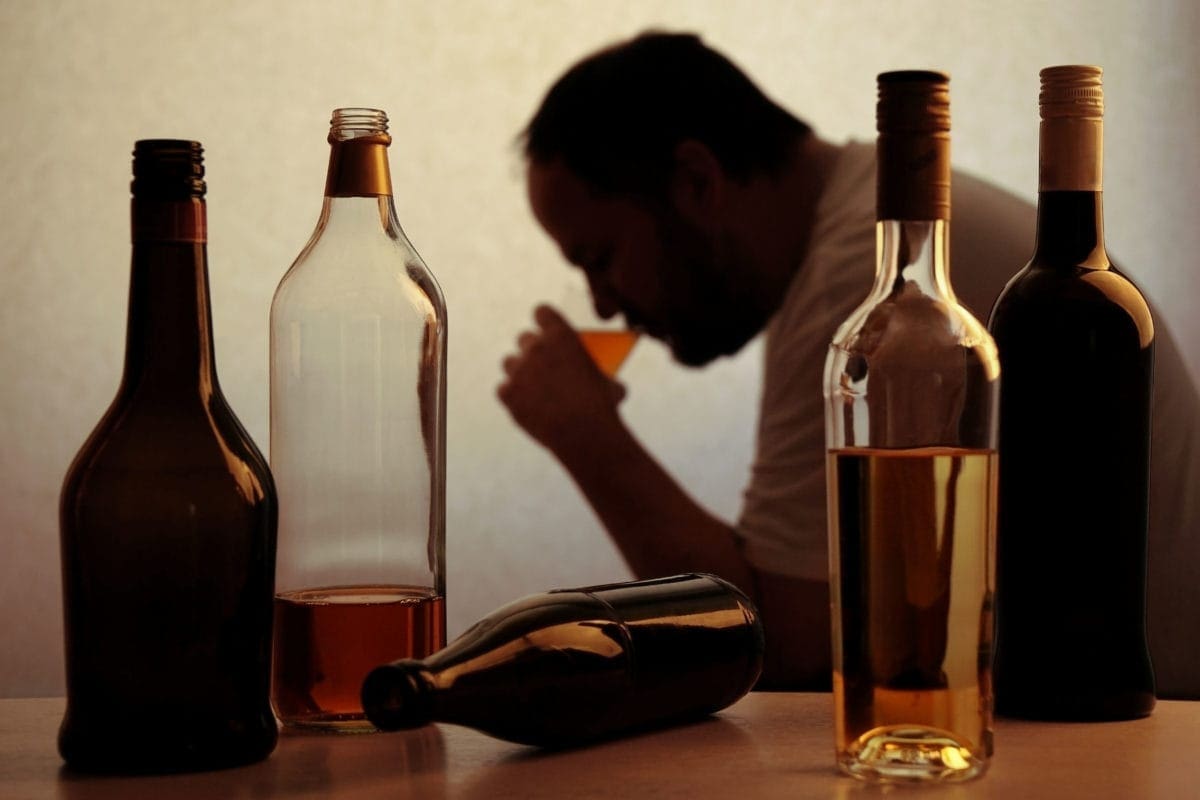Listen to the 11-minute podcast version
Watch a 1-minute overview video
Is it okay to drink alcohol? Yes, it is okay. As long as you read the rest of this article and thoughtfully consider all it says.
As you read, you may be considering that question from one of several points of view:
- You don’t have a problem with alcohol, but you know substance abuse is a big issue, and you want to stay informed.
- You don’t have a problem but know someone who might, and you love them enough to care.
- You aren’t sure if you have a problem or not, but you are courageous enough to find out.
- You feel you likely do have a problem, and you are willing to listen to advice.
All of those are good reasons, and it is admirable for you to take a few minutes to learn more about such an important topic. Because we all have issues and know someone with an alcohol problem, or perhaps we have a problem ourselves.
For Some People, It Is Okay to Drink
The purpose of this article is not to deliver one answer that is right for everyone in all circumstances, but to present valid points that you can apply to your situation.
Many Bible verses can be used to defend various points of view about drinking, and that is a valid and useful approach, so it should likely be part of your decision process.
I won’t quote scripture in this article, but the Bible does not specifically prohibit drinking, although it has much to say on the matter. I’ll mention a few key point later in the article.
I have friends and relatives who are spiritually dedicated and mature who drink. The thought normally doesn’t enter my mind to even consider whether that is right or wrong in their situation. Mostly, it’s a non-issue, and I really mean that. Many people have a drink or two on occasion but never abuse alcohol, and drinking is not a compulsion, obsession, or crutch.
For some people, the answer seems to be, “Yes, it is okay to drink.”
“The hard things in life, the things you really learn from, happen with a clear mind.” (Caroline Knapp in “Drinking: A Love Story“)

For Other People, It Is Not Okay
But there are also some broader issues to consider:
- Alcoholism is a prowling beast that can destroy lives. It is insidious, and it will wait years to pounce. It is deceitful, and it fools even the wise. Once alcoholism strikes, it can ravage individuals and rip apart families.
- Alcoholism can be a delightful and deceptive house guest. It can keep someone pleasantly engaged on many things other than what God wants them to do, and it becomes easy to rationalize issues that appear.
- No matter what your situation, there are negative costs of using alcohol to change how you think and feel. After all, it is a mind-altering substance, which is why people use it in the first place. It is an important enough decision to be worth pausing to consider if you want a lifestyle that depends on a substance.
For me, over time, the desire for alcohol grew stronger than my self-control. I wasted a great deal of time, energy, and money idolizing a daily state of “feeling good,” and that pursuit dominated too much of my thinking on a regular basis.
I was eventually convinced I had to quit drinking or live in disobedience of what God wanted me to do. Plus, I couldn’t bear the thought of looking back on a lifetime of opportunities for joy largely squandered simply to get a good buzz.
Is it okay to drink? For me, the answer is, “No.”
“Alcoholism is a devastating, potentially fatal disease. The primary symptom of having it is telling everyone—including yourself—that you are not an alcoholic.” (Herbert L. Gravitz and Julie D. Bowden from Recovery: A Guide for Adult Children of Alcoholics)
How Do You Know If It Is Okay or Not?
Everyone is different, but some situations are clear on whether it is okay to drink:
- If you are an alcoholic or compulsive drinker–No.
- If you drive a car while under the influence–No.
- If you feel sure that God wants you to stop–No.
Some warning signs to consider if you might have an issue with drinking include if you:
- Have tried to stop, maybe multiple times, but have not been able to.
- Like to drink alone or need to drink to relieve stress, sadness, or insecurity.
- Lack control of how much you drink, sometimes drinking more than you should.
- Ever lie about, cover up, sneak around, or make excuses about your use of alcohol.
- Feel guilty, sometimes believing your life would be better off if you weren’t drinking.
If any of these warning signs apply to you, you have enough of a problem that you should do something about it.
“Alcohol doesn’t console, it doesn’t fill up anyone’s psychological gaps, all it replaces is the lack of God. It doesn’t comfort man. On the contrary, it encourages him in his folly, it transports him to the supreme regions where he is master of his own destiny.” (Marguerite Duras)

Inside, You Probably Already Know
As another quick self-test, ask yourself, “Do I care if I stop drinking?” If the answer is that it really doesn’t matter to you, and the thought of quitting is no big deal, then drinking might not be a serious problem for you.
But you might have an issue if your mind immediately starts reeling off the many very good reasons why it’s totally okay for you to continue drinking—even if you feel concern—such as:
- You’re not hurting anyone.
- You only have a few drinks.
- You only have wine or beer.
- You only drink at night.
- You’re doing fine at work.
- Etcetera, etcetera, etcetera.
- Blah, blah, blah.
Psychologically, that’s called rationalization. In recovery, it’s called denial.
Is it okay to drink? For many people, the answer is, “No.”
“That’s the problem with drinking, I thought, as I poured myself a drink. If something bad happens you drink in an attempt to forget; if something good happens you drink in order to celebrate; and if nothing happens you drink to make something happen.” (Charles Bukowski)
How Much Does It Matter?
It all comes down to, “What role does drinking play in your life?”
Does it matter to your employer?
Do you ever feel impaired on the job (if you do, that decides it). But do you stop work earlier to drink? Do you ever feel more tired than you should? Are you distracted and it harms your productivity? How do you represent the company, and what example do you set for others?
Does it matter to your family?
You may (naively) think your drinking doesn’t affect your family, but you should look more closely. Does it change your relationships with your spouse or kids in a negative way? Does it make you less available to them? Less caring? What example are you setting for them?
Does it matter to God?
Yes, it does, because he loves you and wants what is best for you and your family. Everything you do matters to God. It is up to you to discern how he feels about your drinking, but he likely does not appreciate it if:
- You get intoxicated.
- You set a bad example for others.
- It lessens your ability to serve him.
- It becomes too important—an idol—to you.
“When something becomes so important to you that it drives your behavior and commands your emotions, you are worshipping it.” (J.D. Greear)
Do You Need to Change?
For you, is it okay to drink? It depends. How much does your drinking matter to you?
Ask yourself what positive results will come from your drinking, and what negatives ones. In your heart, do you feel you are living the way you should? When you think about being older and looking back on your life, will you be glad you chose to drink? Are you being totally honest with yourself, and with God, on the role alcohol plays in your life?
What matters most is what you think.
Because nothing will change until you decide it will change. But know that if you have a problem, there is hope. Life can become a wonderful journey again, even though it may still be tough at times. But you will feel good knowing you are moving in the right direction.
Is it okay for you to drink? If not, will you do anything about it?
God doesn’t expect you to be perfect, and he won’t ask you to promise to never mess up again. But he does want, and expect, you to try to do the next right thing.
If you have a problem or feel you need to make a change, may you find the strength and courage to do what you need to do.
Taking the First Step
For some, stopping drinking may be tougher than they anticipate. It will take a holistic approach to get better including:
- Recovery: Getting into a recovery community, establishing accountability, and working the Twelve Steps with a sponsor.
- Spirituality: Being willing to subject your desires to God’s will and understanding (which the Twelve Steps help you do).
- Self improvement: Establishing good daily habits and practicing self discipline (the Twelve Steps also help you there).
If you have any type of problem, the critical first step is to talk to someone. If you have a serious issue, go to a recovery meeting or get professional help. But do something! Reading STEPS: A Daily Journey to a Better Life will also introduce you more deeply to the wonders of how Twelve Steps principles can help you in all areas of your life.
So, is it okay to drink? For you, what do you think?
Question: Do you feel that you or anyone you know has an issue with alcohol?
Action: If you think you have a problem, take a first step and talk to someone about it.

